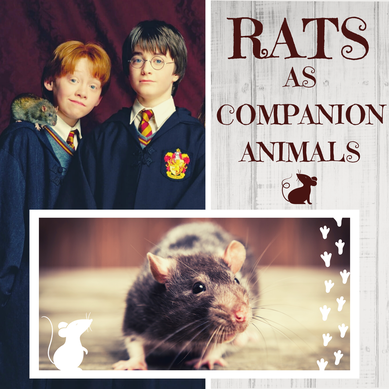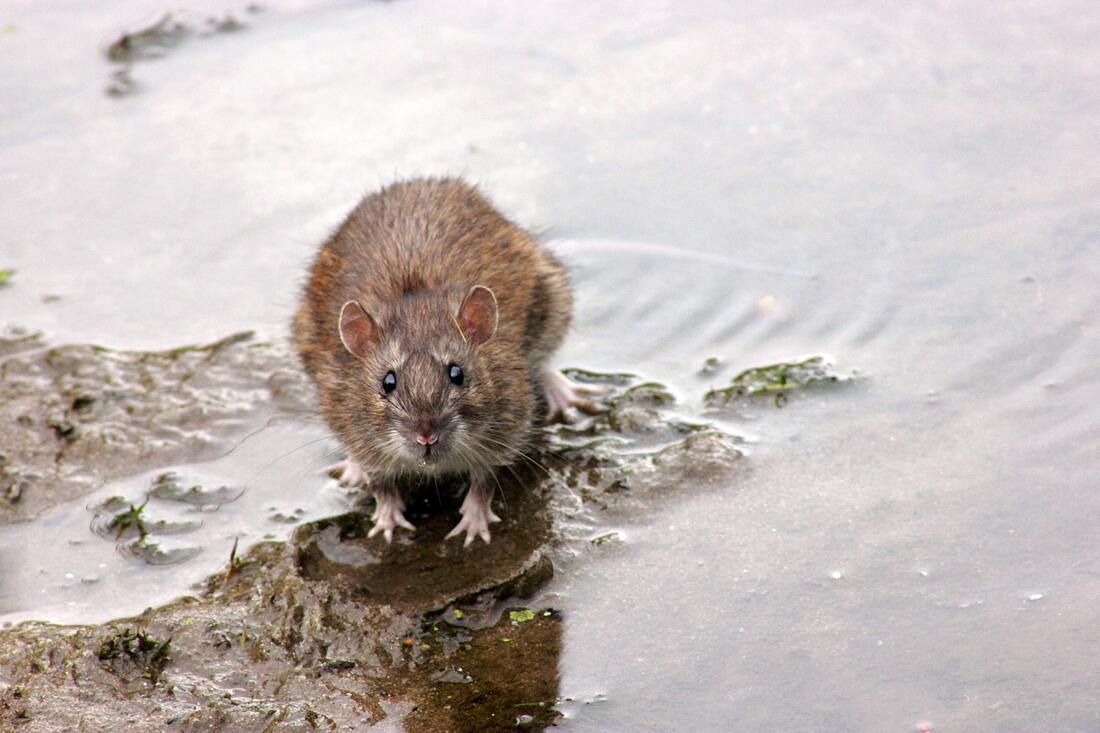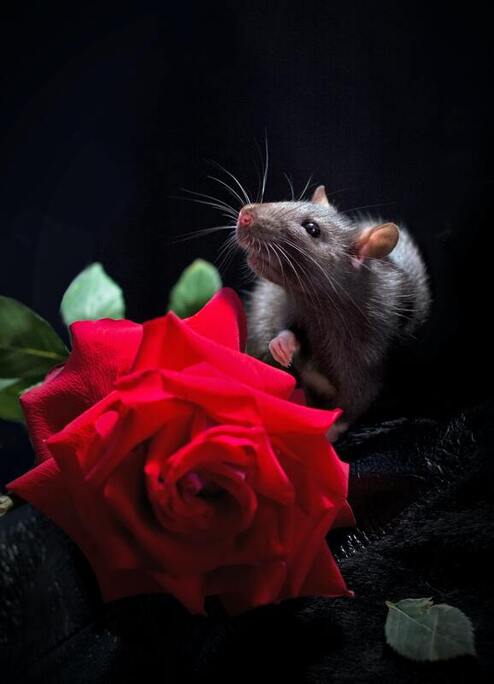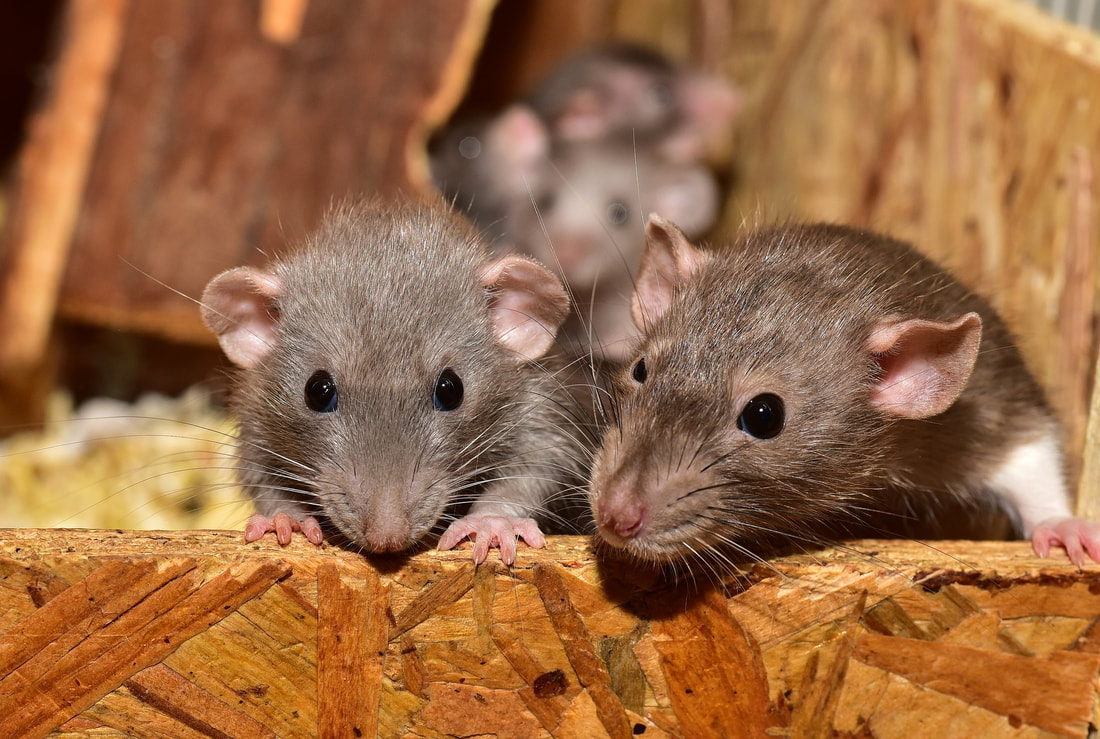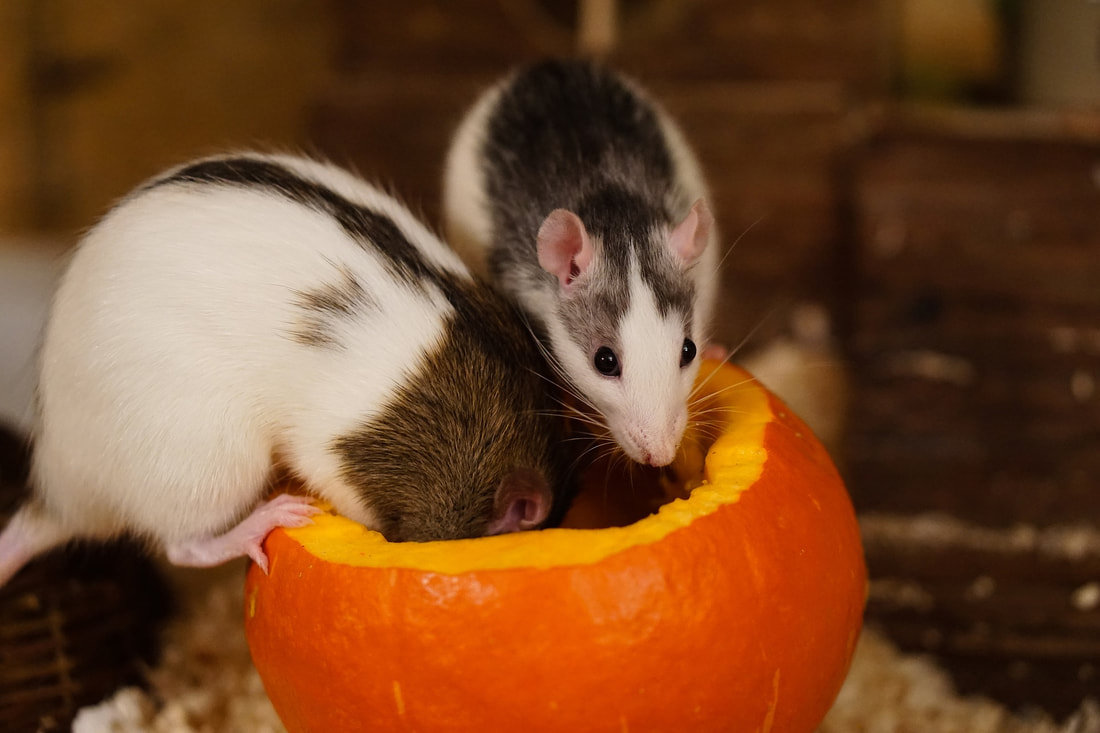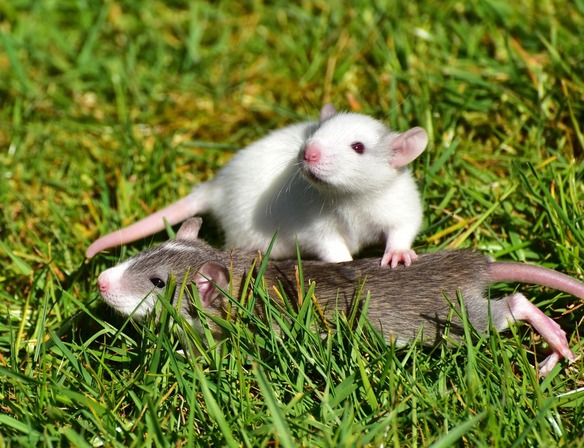Ron’s lack of respect and affection for his “pet” rat is in stark contrast to his best friends’ relationship with their companion animals-- Harry constantly calls Hedwig dignified and beautiful, while Hermione plies Crookshanks with compliments that he’s clever and gorgeous. So what gives? Why are rats regarded as second-class animals and as “vermin” riddled with disease? Yet, on the other hand, why is it that rodents, like rats, are also sometimes considered good “starter pets” for Muggle children? And why are both of those depictions of rats so problematic? As The Protego Foundation’s tribute to rats everywhere, we’re going to take a moment to dispel four of the most commonly held myths about rats and to take a close look at if rats, or any rodents, really should be kept as “pets.”
So what about keeping rats as “pets”? Heading out to a pet shop to purchase a rat as a birthday or holiday gift may seem like a kind gesture, especially if the recipient is an animal lover. But giving any living creature away as a gift comes with a host of problems. Animals are thinking, feeling, sentient beings who have wants and needs just like we do. In many cases, when animals like rats are bought to be given away as gifts, they aren’t always put in such a good position. Often, their needs aren’t met, and as a result, their quality of life suffers. Just because rats and other rodents (like rabbits, guinea pigs, and hamsters) are small and cute, it’s often (wrongfully) assumed that they’re easy to take care of and are very low-maintenance. Whereas the reality is, rats and other rodents often require as much care, if not more, than our canine and feline companions. Here are a few reasons why it isn’t such a good idea to purchase a rat as a gift, especially for children.
#2 Rats Have Special Dietary Needs Just because rats are omnivores, that doesn’t mean they can eat whatever is placed in front of them. Rats and their rodent brethren have distinct dietary needs. They need vitamins, minerals, amino acids, fatty acids, and essential nutrients, just like we do. Rats need a balanced diet that includes specially formulated high-protein rat pellets and fresh fruits and vegetables, like broccoli, romaine lettuce, and apples (with their seeds removed). Rats can also have small amounts of seeds, nuts, and grains, like raw unsalted sunflower seeds, almonds, and dry oats. Many foods are toxic to rats. Peanuts, avocados, and citrus fruits are just a few. And unfortunately, when rats are gifted to Muggle children for their birthday or the holidays, their dietary needs often aren’t met. Without proper food and fresh water, rats can suffer from dehydration, anemia, and other serious nutritional deficiencies that could end in early death.
#4 Rats keep different hours than humans Unlike our companion cats and dogs, rats are active at specific windows of time: a half-hour before sunrise and a half-hour after sunset. Rats are nocturnal animals, so it could be challenging to give them the interaction they deserve, especially if their human caretaker is a young child. This could deprive rats of much-needed playtime and the ability to engage in natural behaviors, leading to stress and frustration. This isn’t ideal for children either, since their waking hours are often when rats are getting their much-needed sleep. Disrupting them and depriving them of their rest (rats can sleep for as much as 15 hours a day) could cause health problems and, again, cause rats’ stress levels to skyrocket.
“Pet” rats are often deprived of this and kept confined in small cages in childrens’ bedrooms, where they become essentially just another “window dressing,” or in chilly, drafty areas like basements or garages. In some cases, caged rats are also kept outdoors, where they’re exposed to frost, wind, snow, and rain. Here at The Protego Foundation, we believe in speaking out and advocating for compassion, respect, and consideration for all animals, regardless of size, species, or magical ability-- including clever, curious, and affectionate rats! We entirely support adopting a rat companion, not shopping for one from a pet shop. There are so many companion rats out there who could use a loving person to care for them. Welcoming a companion rat into your life is a beautiful thing if you’re able to meet their needs, treat them with kindness, and give them ample opportunities to be the rat they were born to be! So, what are your thoughts? Had you bought into any of the myths about rats before you read this? What are your opinions about rats as companion animals? Let us know in a comment below or by tagging us on social! Written by Victoria Tomis. Accio More Articles:
0 Comments
Your comment will be posted after it is approved.
Leave a Reply. |
The Protego Foundation's work is made possible, in part, thanks to Tylor Starr.
The Protego Foundation and its activities are not licensed by, sponsored by or associated with Warner Bros., J.K. Rowling, or their affiliates. 'Wizarding World,' 'Harry Potter,' ‘Fantastic Beasts' and all related names, characters and indicia are trademarks of and © Warner Bros. - Harry Potter publishing rights © J.K. Rowling.
FEIN 83-3531129
The Protego Foundation and its activities are not licensed by, sponsored by or associated with Warner Bros., J.K. Rowling, or their affiliates. 'Wizarding World,' 'Harry Potter,' ‘Fantastic Beasts' and all related names, characters and indicia are trademarks of and © Warner Bros. - Harry Potter publishing rights © J.K. Rowling.
FEIN 83-3531129

